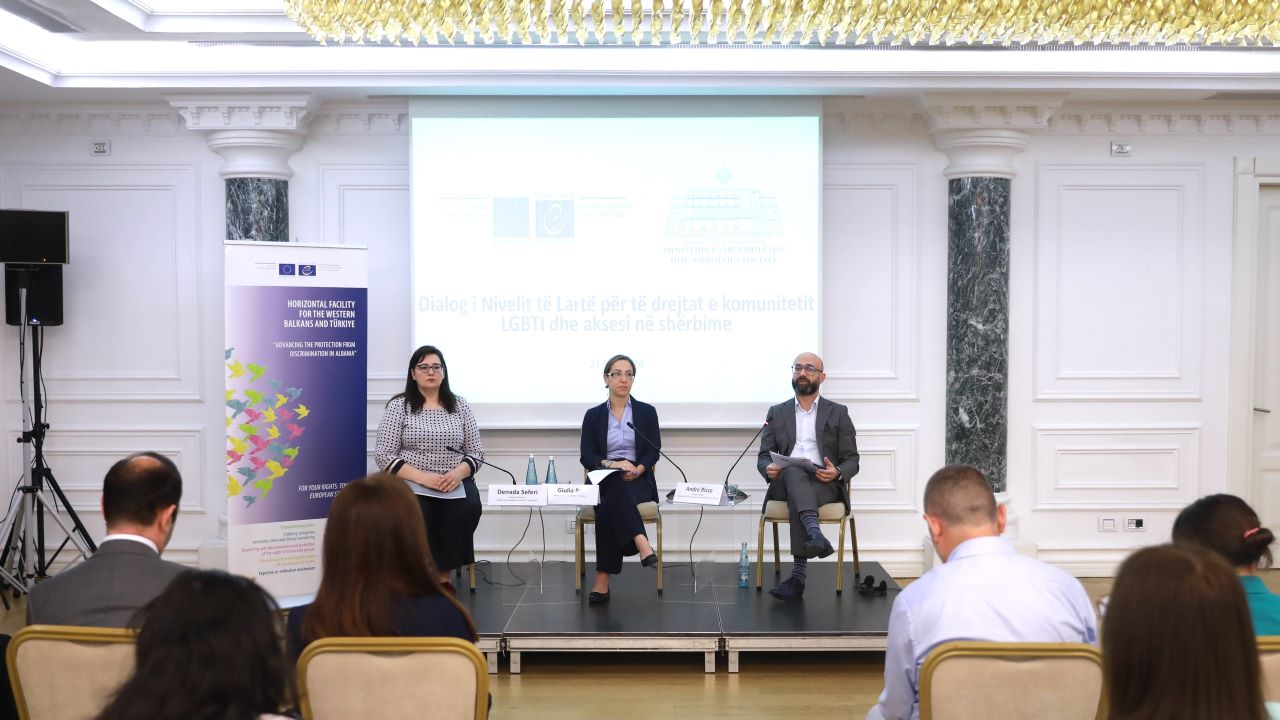As among the activities marking the International Day against Homophobia, Biphobia and Transphobia (IDAHOT) in Albania, an important public discussion on access to services for LGBTI people was organised by the Ministry of Health and Social Protection, with the support of the European Union and Council of Europe action against discrimination.
While Albania has made significant progress towards improving the rights and access to services for its LGBTI community members, yet key challenges remain in ensuring equal access to key services such as employment, education, and healthcare.
The event was opened by the Deputy Minister of Health and Social Protection, Denada Seferi, who highlighted that the Ministry of Health and Social Protection, as a leading institution, will continue to support the responsible institutions, and continue the co-operation with independent institutions, as well as with civil society organisations, to increase awareness and ensure the provision of quality services in support of human rights for LGBTI+ people in Albania.
The Head of the Council of Europe office in Tirana, Giulia Re, stated in her welcoming remarks that today’s event proves that we are part of a society committed to the principles of equality and diversity and want to create a more inclusive society for all. This begins with ensuring that every individual, regardless of their sexual orientation or gender identity, has equal access to healthcare, education, employment, and other essential services.
Chargé d'Affaires of the European Union Delegation in Albania, Andre Rizzo, stated that equality and non-discrimination are part of EU’s values. Ensuring a far and equal access to public services such as health, education, justice, but also housing and employment for all, for LGBTIQ+ people, but also for other vulnerable groups is the only way to make human rights a reality.
Representatives of line ministries, civil society organisations and international organisations continued with concrete discussion on how to address important challenges that LGBTI community is facing regarding access to education, health and employment. Participants noted that despite the fact that schools are increasingly adopting anti-bullying policies that address homophobic and transphobic bullying, yet LGBTI students often experience bullying and harassment.
Another important exchange between representatives of public institutions and related actors in the field, stressed that many LGBTI individuals in Albania face discrimination in the workplace, starting from the hiring process to the day-to-day work environment. Additionally, LGBTI individuals often face stigma and discrimination in the healthcare settings, in particular, transgender people.
Active discussion between representatives of line ministries and civil society organisations set the next steps, aiming at increasing co-operation of all actors in the efforts to advance the protection of human rights for LGBTI community in Albania. By working together, can be ensured that all individuals, regardless of their sexual orientation or gender identity, have equal access to the services they need and deserve.
-------------------------
This activity was organised within the actions “Advancing the Protection from Discrimination in Albania” part of the joint European Union and the Council of Europe programme “Horizontal Facility for the Western Balkans and Türkiye”.




